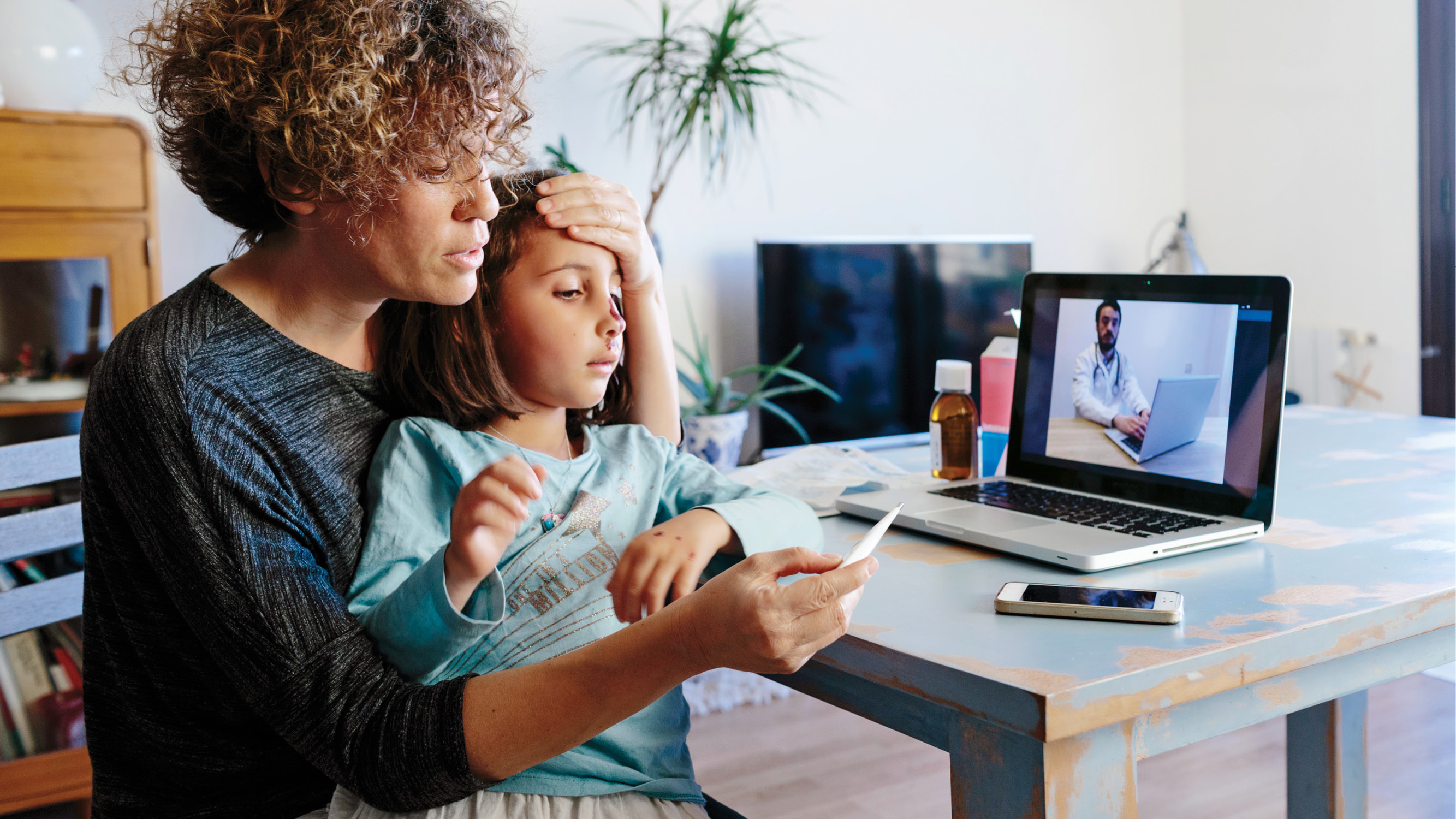Even when the pandemic ends, virtual doctor appointments might not. Video doctor visits can be effective—especially if you follow these best practices.
Before the pandemic, having an online doctor visit was something you might do if you lived in a remote area. But now, things are different, and many if not most doctor appointments are being done by video call, both for adults and for kids. And guess what? That might not immediately change even when the pandemic is over—in fact, it could become the new normal. While an online doctor visit for kids does have their limitations—your kid’s cavity can’t be filled over Zoom, unfortunately—they can often be highly effective, especially if you follow these seven best practices.
1. Provide information beforehand
In advance of the appointment, send a high-resolution picture of visible symptoms like rashes, cuts, wounds or bruises. If there’s a symptom questionnaire to fill out, don’t neglect to do so—it will make the appointment more efficient.
2. Select a good spot for the call
Choose a quiet, private place for your appointment, so you and your child can speak and hear well. For a video call, choose a well-lit spot so the doctor can clearly see your child.
3. Collect the required accessories
Gather any health devices suggested by your doctor such as an oral thermometer or a bathroom scale and have them ready for your online doctor visit.
4. Test your tech
If you’re using a video call app that’s new to you, try it out with a friend or family member in advance (if it’s a publicly available app). Decide and test whether a smartphone, tablet or laptop would work best for you and your child.
5. Write down your main concerns
Write down key points and questions you want to discuss. Blanking in the middle of the appointment is common.
6. Don’t expect your kid to stay still for too long
Online doctor visits for kids can be a little frustrating, especially if you know your little one isn’t the best at sitting quietly. Try to have the doctor examine your child early in the appointment, so they don’t have to stay at the computer too long. Once they run off you can ask more questions without being flustered or distracted. It can also be helpful for both parents to be there for an appointment with a baby or toddler. One parent can hold the baby or entertain the toddler so the other can focus on the doctor.
7. Make sure you know what happens next
Make notes about the doctor’s opinion and recommendations and ask questions if the doctor’s advice or next steps aren’t clear.
